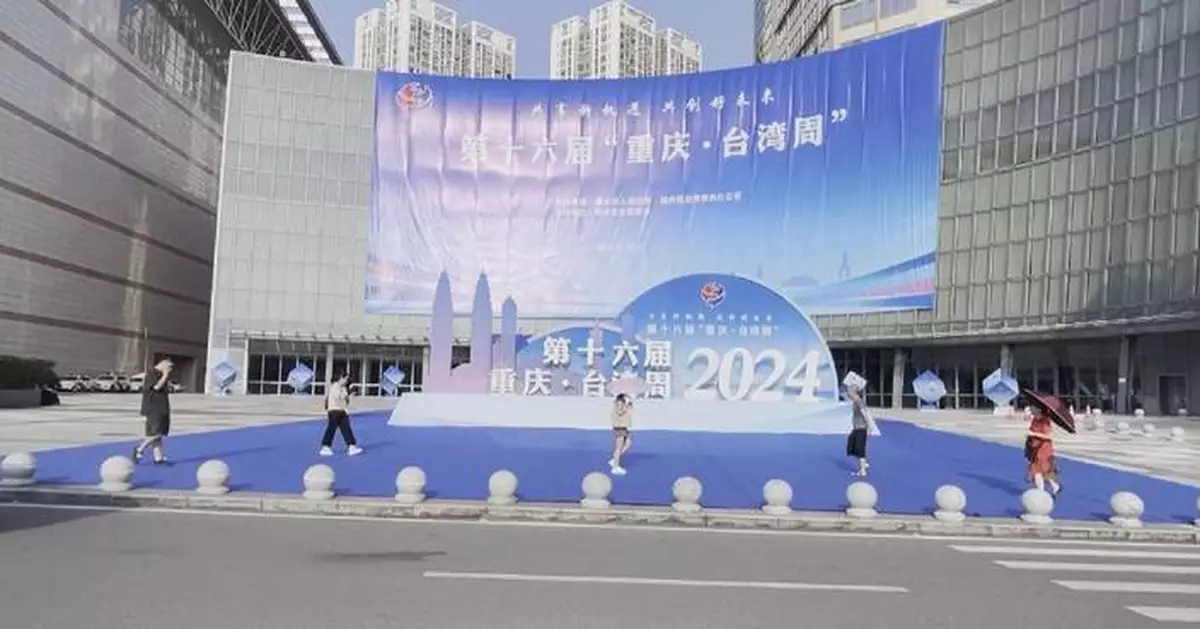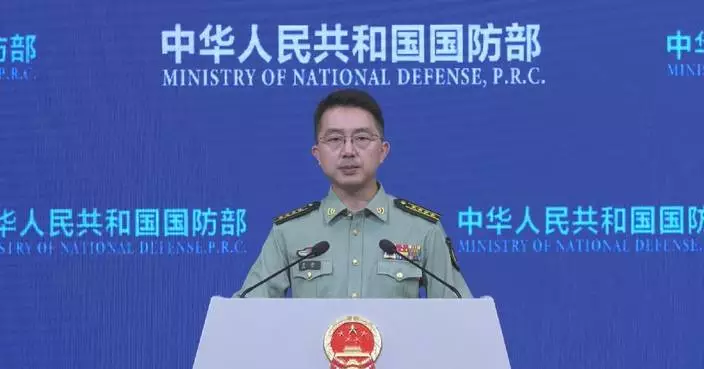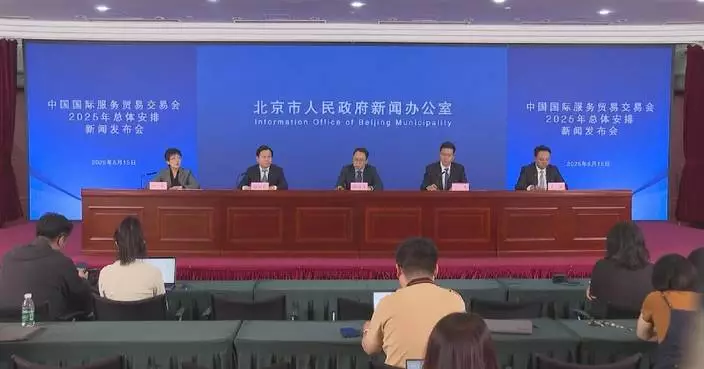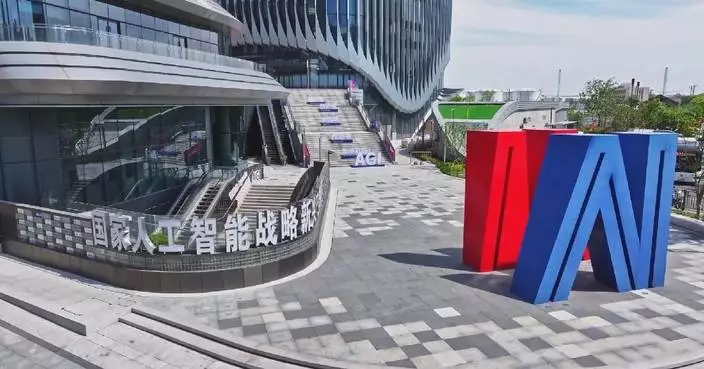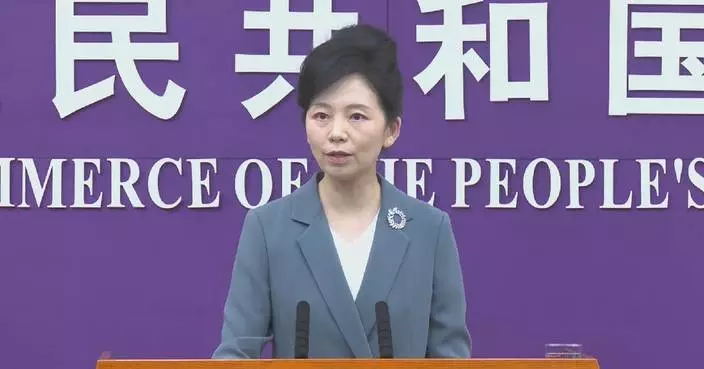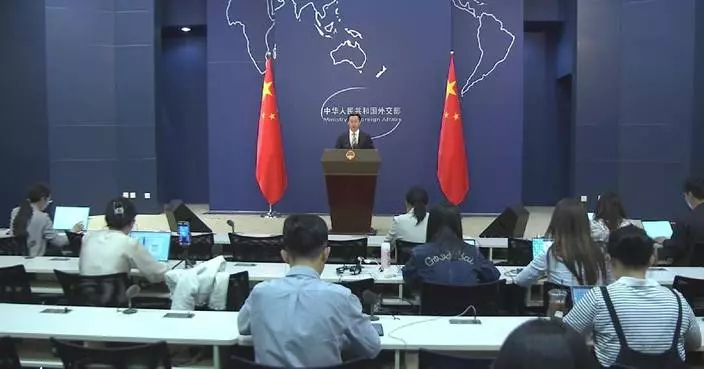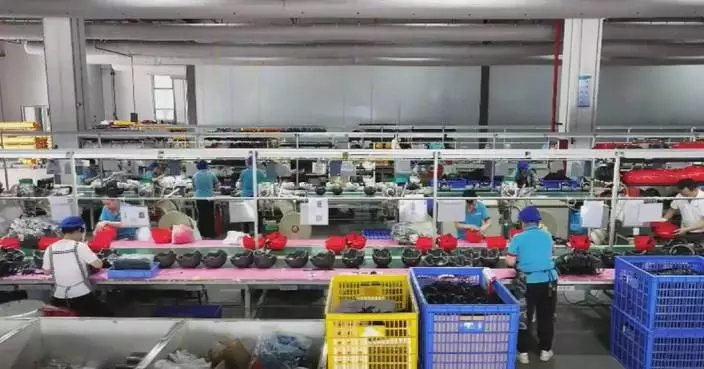The 16th "Chongqing-Taiwan Week" was held in southwest China's Chongqing Municipality from Monday to Friday, further boosting cooperation and deepening exchanges across the Taiwan Strait.
The opening ceremony on Tuesday witnessed the signing of nine key cross-Strait economic and trade cooperation projects between seven districts and counties in Chongqing and Taiwan with a total investment of more than 1.6 billion dollars, covering areas including new energy, entrepreneurial services, and new materials. The event, themed "Sharing New Opportunities, Seeking New Development Together," involved 18 activities in economic cooperation, cultural exchanges, youth exchanges and other areas, attracting over 800 guests from both sides of the Taiwan Strait.
"I believe that an event like 'Chongqing-Taiwan Week' actually can bring together talents from both sides of the Taiwan Strait on the same platform, allowing for direct communication and a better understanding of each other's needs," said Stephanie Chou, an anchor of CTITV News from Taiwan.
Meanwhile, the 2024 Cross-Strait "Twin Cities Story" Media Visit also took place in Chongqing and neighboring Sichuan Province this week. Media representatives from the mainland and Taiwan Island visited Chongqing's Liangjiang and Bishan Districts, as well as some cities in Sichuan to learn about technological innovation, distinctive cultural tourism, and more.
At San Su Shrine Museum in Sichuan's Meizhou City, which is the former residence of Su Xun and his two sons Su Shi (Su Dongpo) and Su Zhe, three literary masters of the Northern Song Dynasty (960-1127), Taiwanese media workers said that this tour has deepened their sense of identity with Chinese culture shared by the people on both sides of the Strait.
"I've known about Su Dongpo since we began learning to read and write, but I have never been to his hometown. So the feeling of being here today is beyond words. It is indeed a very good thing that this enhances the shared historical memory of the two sides of the Strait," said Peter Sung, executive deputy editor of Meihua Media from Taiwan.
At each spot, reporters from both sides of the Strait listened intently and captured what they saw with their phones and cameras. They noted that they would extensively disseminate their observations and insights from this journey through their respective media platforms.
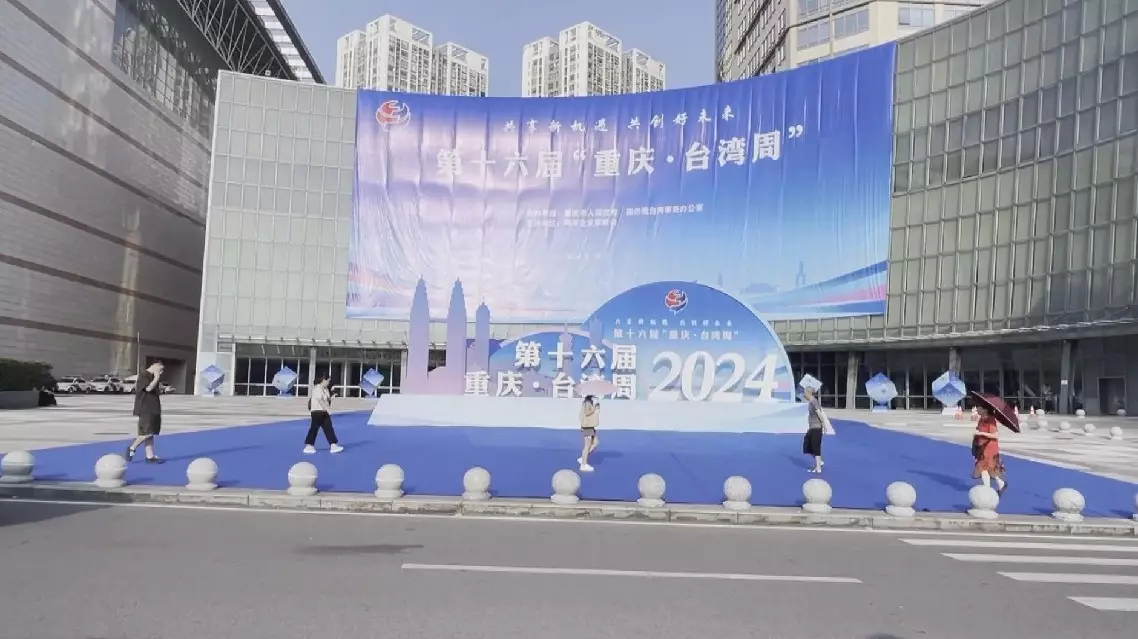
Chongqing-Taiwan Week held to seek new cross-Strait exchanges
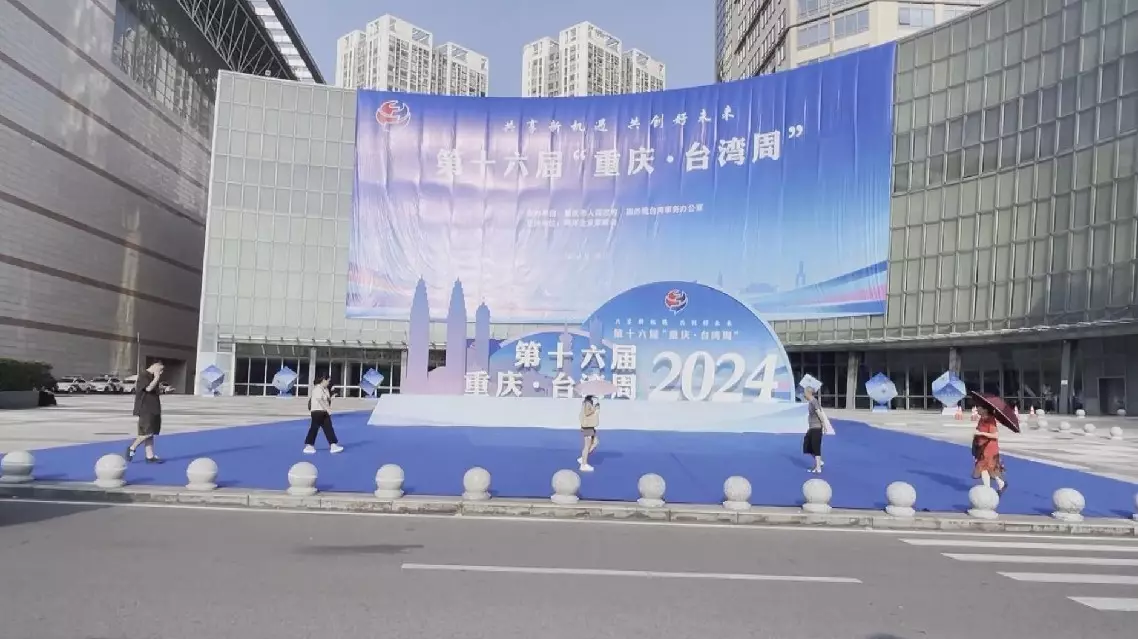
Chongqing-Taiwan Week held to seek new cross-Strait exchanges
The U.S. Department of Commerce has issued new guidance declaring that the use of Huawei's Ascend AI chips "anywhere in the world" may violate U.S. export control regulations.
The statement, released by the department's Bureau of Industry and Security on Tuesday, explicitly warns of the potential consequences of enabling U.S.-origin "AI chips to be used in training or inference for Chinese AI models."
In response to the statement, the Chinese Ministry of Commerce vowed on Thursday to take resolute measures to safeguard the legitimate rights and interests of Chinese enterprises.
While the move aligns with Washington's broader strategy to curb China's access to advanced semiconductor technologies, it also underscores a deeper anxiety: the fear of losing its global leadership in artificial intelligence.
NVIDIA CEO Jensen Huang said that China is "not behind" the U.S. in artificial intelligence and called the race in AI development a "long-term, infinite race," as he spoke to reporters at a tech conference in Washington, D.C., last month.
During a recent congressional hearing, U.S. tech leaders, including OpenAI CEO Sam Altman and executives from Microsoft and chipmaker Advanced Micro Devices, testified on Capitol Hill to urge lawmakers to streamline policy for AI-related projects and fundraising in order to race against China in AI development.
The latest guideline follows a period of regulatory volatility. After walking back the previously announced "AI Diffusion Rule" from the Biden administration, the U.S. has now pivoted toward this more aggressive interpretation – a shift that highlights the inherent difficulties in enforcing such extraterritorial bans.
Convincing sovereign nations to follow U.S. law, particularly when it limits their own tech development, poses significant diplomatic and operational challenges.
"The Trump administration will pursue a bold, inclusive strategy to American AI technology with trusted foreign countries around the world," Tuesday's statement says.
Implementing a global enforcement regime would likely require bilateral negotiations with dozens of countries – a time-consuming and politically fraught process that risks diminishing returns.
In practice, these efforts may only reinforce China's determination to achieve technological self-sufficiency. Huawei's trajectory stands as a case in point.
Since coming under U.S. sanctions in 2019, the company has made notable advances in AI and chip development. Most recently, the company invited select Chinese tech companies to test its most powerful processor yet, the Ascend 910D, the Wall Street Journal reported, citing sources familiar with the matter. The chip is expected to rival – or even surpass – Nvidia's H100 in performance.
If such innovation continues to emerge under pressure, Washington may need to ask itself: Is the goal to contain China or to compel it to innovate faster?
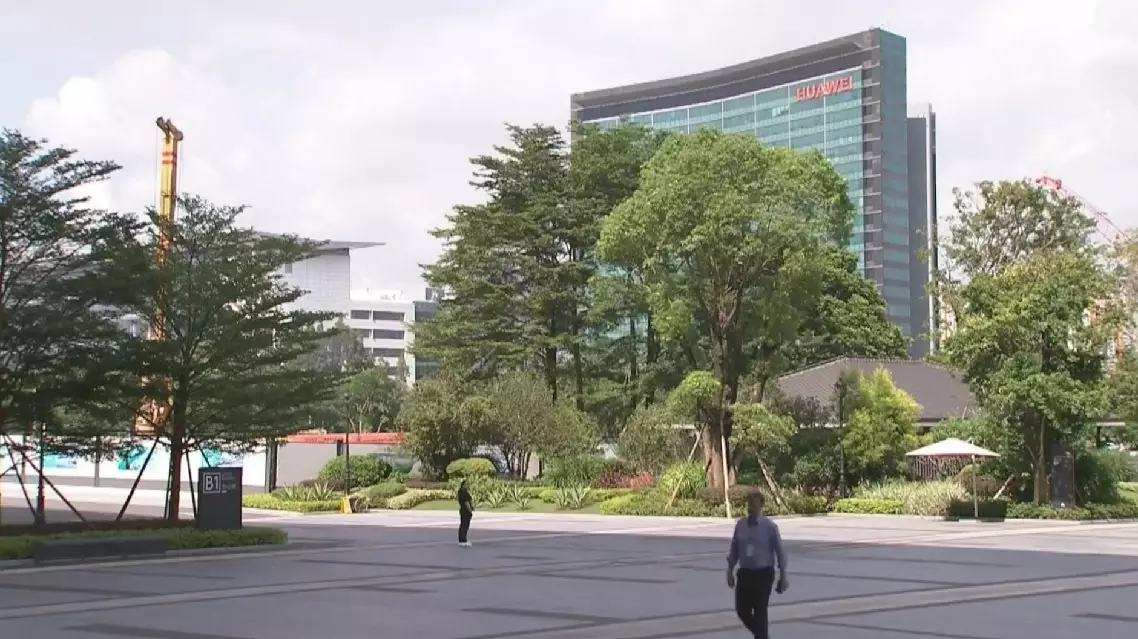
New US guidance on Huawei chip usage reveals deeper fears, tougher realities




